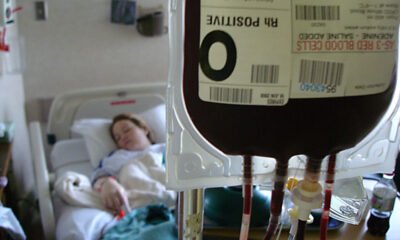Business
State Lawmakers Rally Behind RFK Jr.’s Bold Health Agenda

Republican state legislators across the United States are actively pushing a series of bills under the “Make America Healthy Again” (MAHA) initiative, which is championed by activist lawyer and former presidential candidate Robert F. Kennedy Jr., recently appointed as the next U.S. health secretary.
This new legislative movement seeks to impose restrictions on food purchases through social welfare programs, notably targeting candy and sugary drinks, while also aiming to eliminate fluoride from public water supplies and amend vaccination requirements.
In an effort to promote these changes, lawmakers are engaging celebrities and leveraging social media campaigns using hashtags like #RFK and #MAHA to highlight their legislative successes. A gala event earlier this year marked the kickoff for the movement, further solidifying its presence in the political sphere.
Wyoming Republican state Rep. Jacob Wasserburger expressed his enthusiasm for the initiative, citing personal health struggles during childhood as a driving force behind his support for MAHA. He criticized the current state of health care, emphasizing the need for systemic changes.
Kennedy, known for his controversial stances on vaccines and public health policies, has garnered support from conservative lawmakers interested in revising existing health mandates. His perspective on issues like ultra-processed foods and corporate influence on health is resonating with those seeking to overhaul public health guidelines.
A prominent focus of the MAHA agenda is a proposal forbidding families on food stamps, formally known as the Supplemental Nutrition Assistance Program (SNAP), from purchasing candy and soda. States such as Arizona, Idaho, Kansas, Tennessee, Utah, and Wyoming have introduced legislation to amend product eligibility within SNAP.
In Wyoming, Wasserburger’s bill has gained traction, recently passing the House and moving to the Senate. He argues that taxpayer dollars should support nutritious food choices rather than indulgences like candy and soda.
Proponents claim that sugary treats adversely affect public health, particularly among children. Conversely, critics argue the real issue lies in the accessibility and affordability of healthy food options in low-income areas. Some have labeled the bills as governmental overreach, expressing concerns over the ambiguity in defining prohibited items.
This legislative push follows the federal Healthy SNAP Act, which aims to restrict junk food purchases through SNAP programs. Notably, this marks a significant shift in conservative attitudes, considering that many previously opposed efforts to improve school lunch nutrition.
During Trump’s presidency, similar efforts were stalled. Now, under a renewed administration, momentum has shifted towards enhancing regulations on unhealthy food purchases.
In Arizona, state Rep. Leo Biasiucci recently fronted a bill aimed at banning certain food additives in public schools, supported by celebrities and conservative groups, highlighting a growing trend among lawmakers to align health policies with MAHA principles.
The MAHA initiative is also reshaping vaccination policies, with bills emerging in various states seeking to relax or amend vaccine requirements. This trend reflects Kennedy’s controversial views on vaccinations, providing cover for legislators seeking to revise existing health mandates.
Fluoride in public water systems is another target of proposed legislation. As concerns arise about potential health risks tied to fluoride exposure, states like Arkansas, Hawaii, New Hampshire, North Dakota, Tennessee, and Utah are considering measures to prohibit its addition to drinking water.
Despite widespread support for water fluoridation among major health organizations, recent studies suggest potential developmental risks associated with excessive fluoride levels. These findings are fueling the debate and prompting some legislators to reconsider public health strategies related to water safety.


















